News & Awards
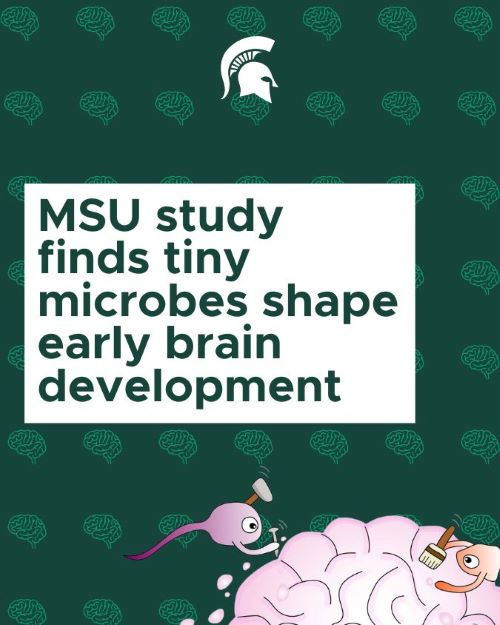
MSU study finds tiny microbes shape brain development
New research from Dr. Alexandra Castillo-Ruiz's lab at Michigan State University finds that microbes play an important role in shaping early brain development, specifically in a key brain region that controls stress, social behavior, and vital body functions.
Learn more about this study here.

Behavioral Neuroscience represents at the MSU Science Festival
Catch MSU Psychology at the Science Festival STEAM Expo day on Saturday, April 5th! Behavioral neuroscientist Dr. Alexandra Castillo-Ruiz and her lab will be using interactive demonstrations and hands-on activities to show how microscopic living organisms (called microbes) contribute to brain development.

MSU study reveals dopamine's unexpected role in memory devaluation
New research out of Michigan State University expands on current understanding of the brain chemical dopamine, finding that it plays a role in reducing the value of memories associated with rewards. The study, published in the open access journal Communications Biology, opens new avenues for understanding dopamine's role in the brain.
The research team discovered that dopamine is involved in reshaping memories of past rewarding events - an unexpected function that challenges established theories of dopamine function.
"Our findings were surprising based on our prior understanding of dopamine's function. We typically don't tend to think of dopamine being involved in the level of detailed informational and memory processing that our study showed," said lead researcher Alexander Johnson.

MSU study pinpoints the impact of prenatal stress across 27 weeks of pregnancy
A team of researchers at Michigan State University and the University of Michigan found new insights on the timing of prenatal stress and its effect on infant stress reactivity and temperament including — differences between genders.
"This study is an essential step in correcting our understanding around prenatal stress effects for boys and girls," said Joseph Lonstein, investigator on the study and professor in MSU's Department of Psychology. "We hope that our findings inspire additional research so we can better understand what is happening in fetal brain development across pregnancy and how it is affected by stress."

Worried about a pregnant woman's stress and mental health? Her saliva may hold the key.
New research out of Michigan State University found that the number and type of microbes present in the saliva of pregnant women differ according to whether they are experiencing life stress and symptoms of anxiety, depression, and post-traumatic stress disorder.
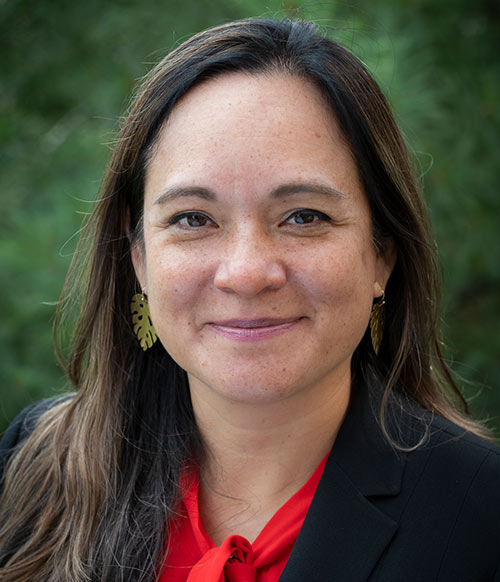
New Behavioral Neuroscience Faculty: Dr. Alexandra Castillo-Ruiz
The Michigan State University Department of Psychology welcomes Dr. Alexandra Castillo-Ruiz as a new assistant professor in the Behavioral Neuroscience research area.

MSU discovers method for CRISPR-based genome editing in Nile grass rats
A team of MSU researchers, including Dr. Lily Yan, Katrina Linning-Duffy, and Jiaming Shi, has discovered a set of methods that enabled the first successful CRISPR-based genome editing in Nile grass rats. The study is the first to successfully edit genomes in Nile grass rats. As diurnal rodents, Nile grass rats have similar sleep/awake patterns to humans which could be advantageous in preclinical or translational research.
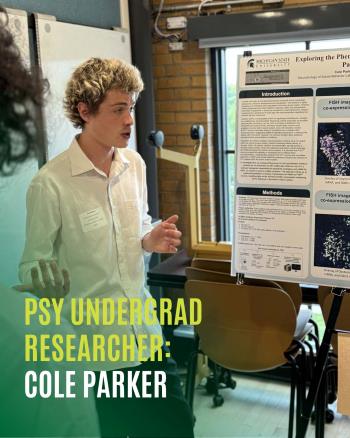
PSY student research spotlight with Cole Parker
Cole Parker, a senior psychology major, is an undergraduate researcher in the Veenema Lab where they focus on social play behavior. This summer, Cole received a PURI Award from the College of Social Science to help support his research with Dr. Alexa Veenema.
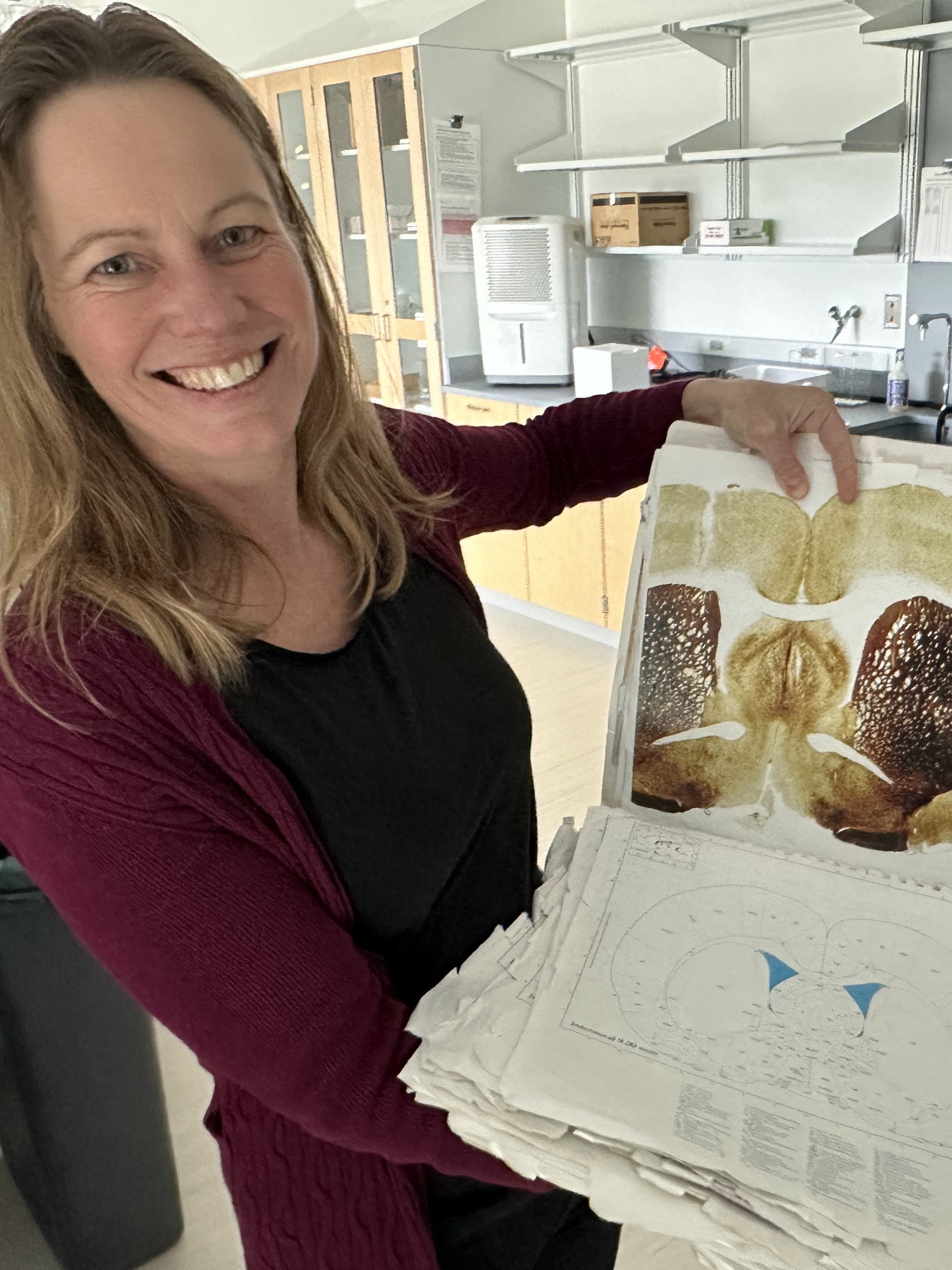
A behavioral neuroscientist's insights on social play
What’s going on in your brain when you’re navigating social situations? And how exactly are social behaviors developed and regulated by the brain? Behavioral neuroscientist Dr. Alexa Veenema shares about her research on social play.

Cheryl Sisk selected as a fellow in neuroscience for distinguished contributions
Cheryl Sisk, University Distinguished Professor Emerita of the Department of Psychology and the Neuroscience Program has been selected by the American Association for the Advancement of Science as a fellow in neuroscience for distinguished contributions to the impact of puberty on the adolescent brain, particularly how it relates differently to social behaviors and eating disorders in males and females.
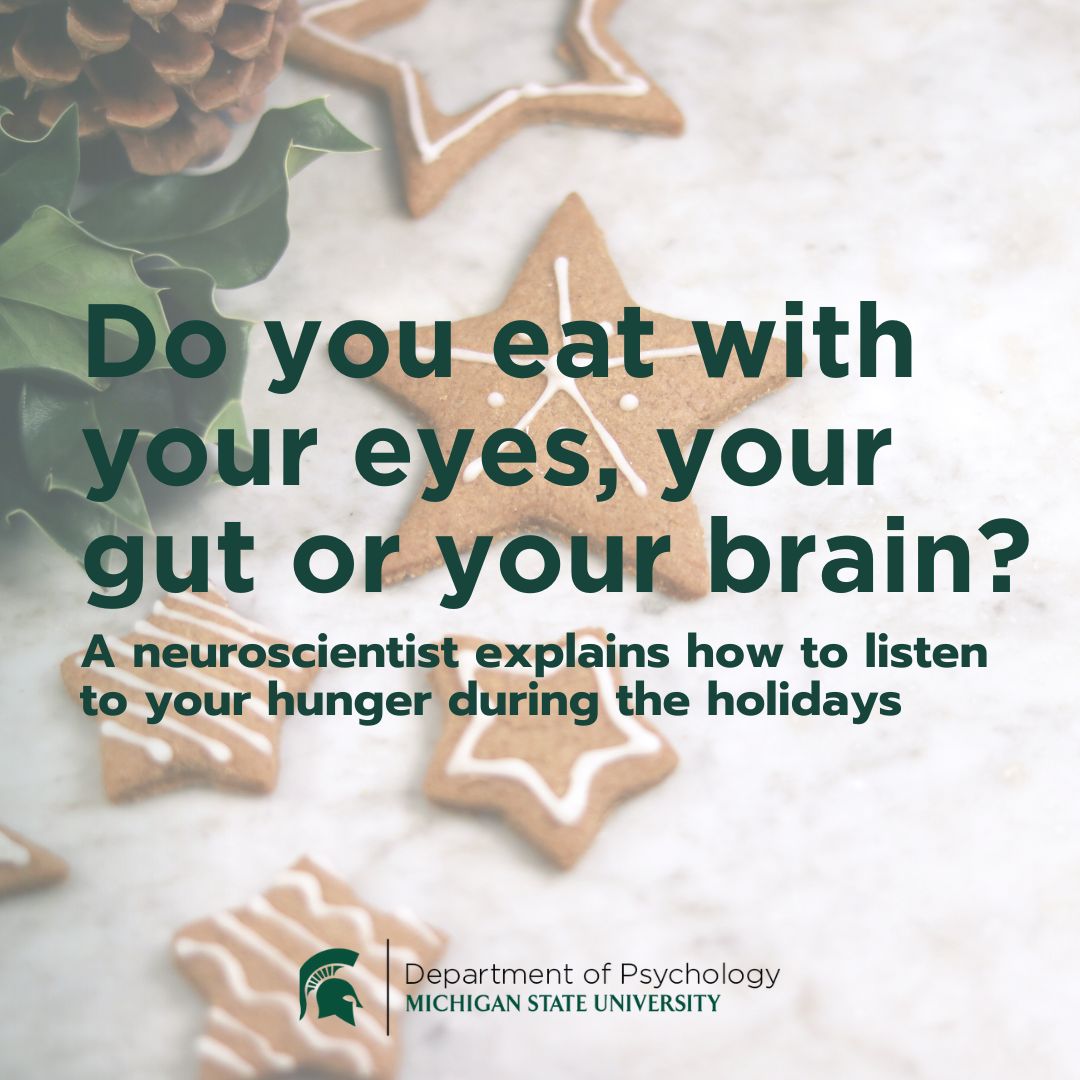
Do you eat with your eyes, your gut, or your brain? A neuroscientist explains how to listen to your hunger
What's going on in your brain when you decide what, when, and how much to eat? The science behind eating behavior reveals that the process is far more complex than just consuming calories when your body needs fuel. As a scientist interested in the psychology and biology that drives eating behavior, Dr. Johnson shares about how the brain's experiences with food shape eating decisions.

Interested in applying to our graduate program?
Come to our virtual information session on September 20th at 7PM (ET) to find out more about our area of focus, how to apply, and to meet some of the faculty and students. Sessions will be held for each area of interest:
*Missed the session? Click here to watch a recording.
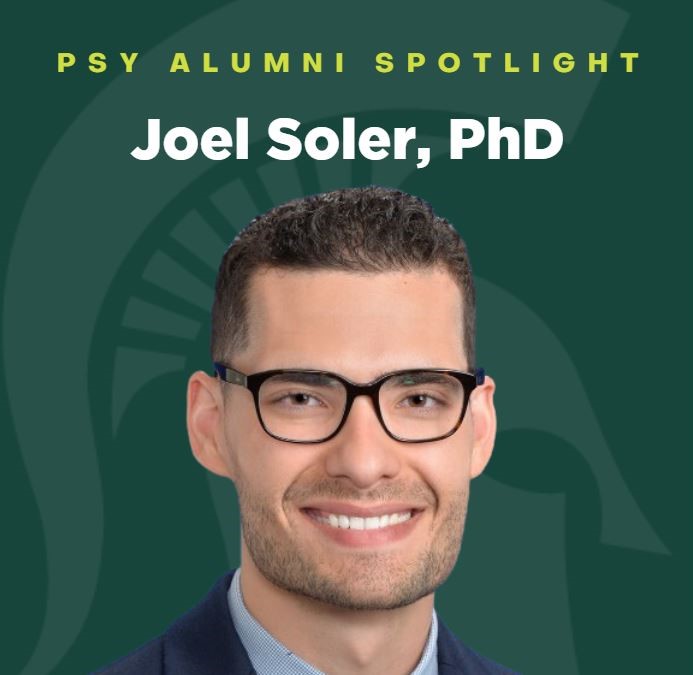
Behavioral neuroscience alumni spotlight with Joel Soler
Joel Soler earned a PhD in Psychology in May 2019, specializing in Behavioral Neuroscience. Shortly after graduating, he began working for Eli Lilly and Company as a medical writer and is now a Senior Manager in the Lilly Research Laboratories Campus Recruiting division. Joel sat down with us recently to talk about his time at MSU, how he ended up in the field that he is, and how his program prepared him to make a difference in the workplace.
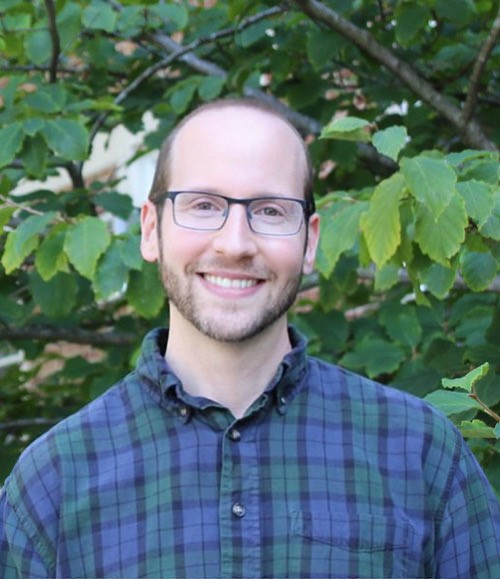
Dr. Lonstein receives grant to examine how stress affects a mother's brain and behavior in a laboratory rat model
Dr. Joseph Lonstein, a behavioral neuroscientist in the MSU Department of Psychology, along with Drs. Galit Pelled, a neuroscientist in MSU Biomedical Engineering and Radiology, and Fredric Manfredsson at the Barrow Neurological Institute in Phoenix have received a $425,000 grant from the National Institutes of Child Health and Human Development, a subdivision of the National Institute of Health. This two-year grant will fund their project, Neural Basis of Stress-Derailed Motherhood, which aims to examine how stress affects a mother’s brain and behavior in a laboratory rat model.
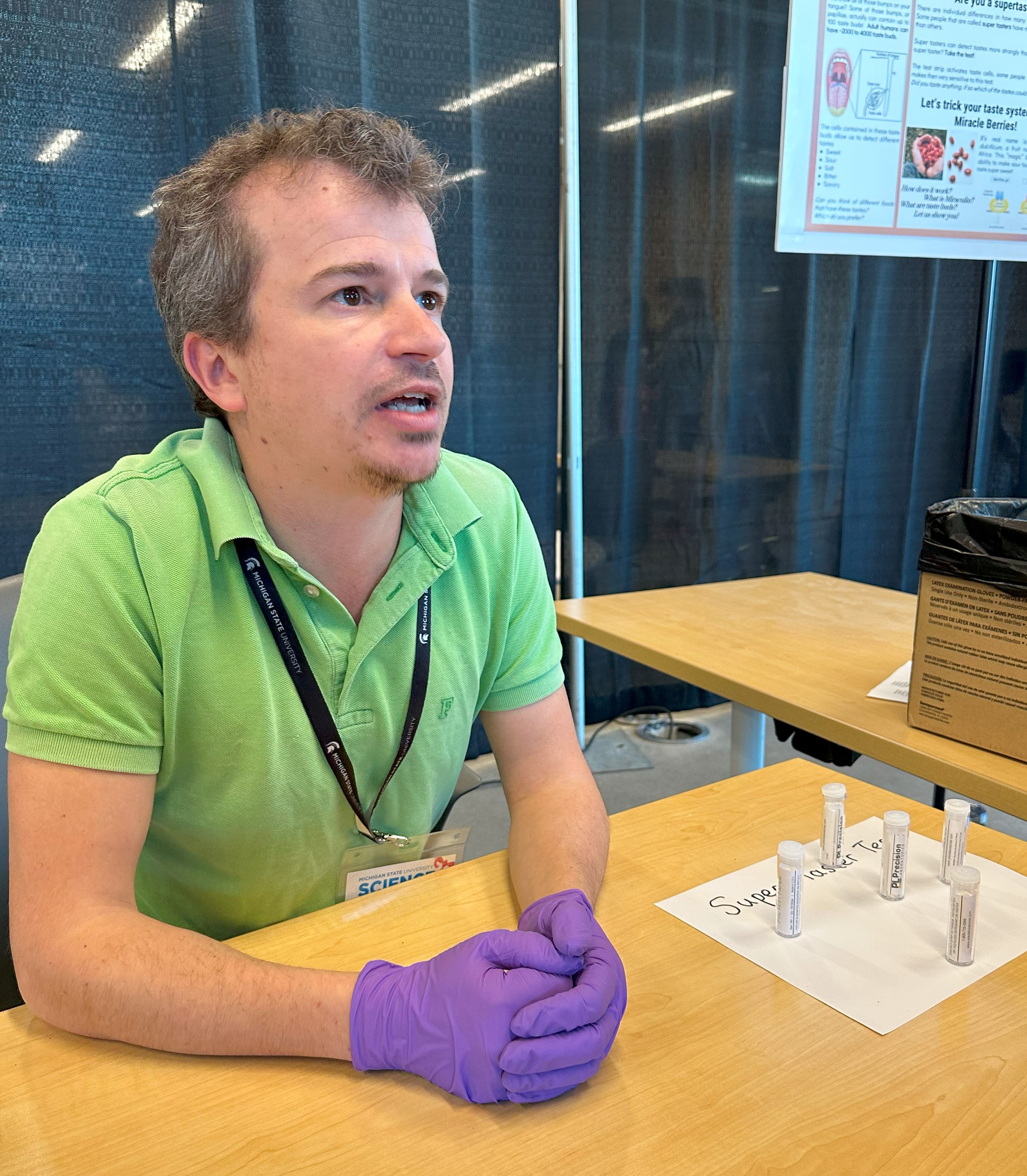
A taste of neuroscience at the STEAM Expo Days
During STEAM Expo Days on April 2nd, you can engage with “A Taste of Neuroscience” and discover how the brain and body interact to influence our eating behaviors. Members from the Johnson Behavioral Neuroscience Lab of the Department of Psychology combine principles of learning and memory with sophisticated neuroscience to explore questions about eating behaviors and metabolism.
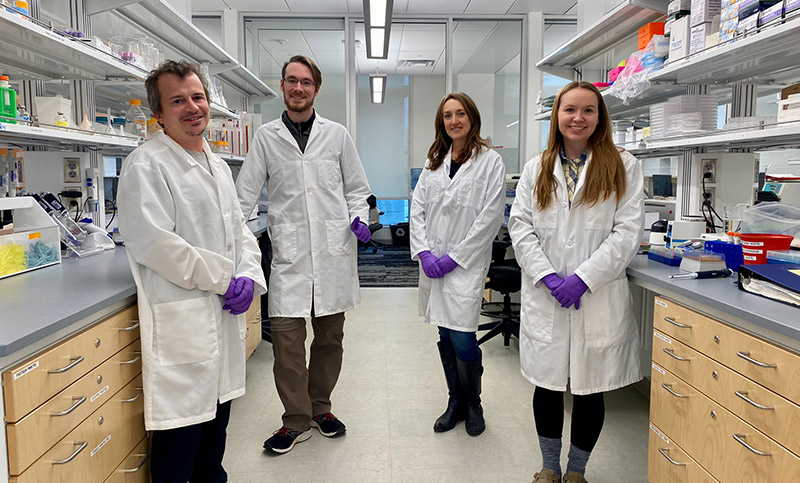
Research spotlight with Dr. Alex Johnson's Lab
Why is it that we often overeat during the holidays? How can some people always seem to make room for an extra slice of pie? Psychology professor Dr. Alex Johnson and his team of researchers know just how complex the answers are to those questions. From genetics to chemicals to environmental cues, there are a lot of factors that make a difference in why and how people eat.
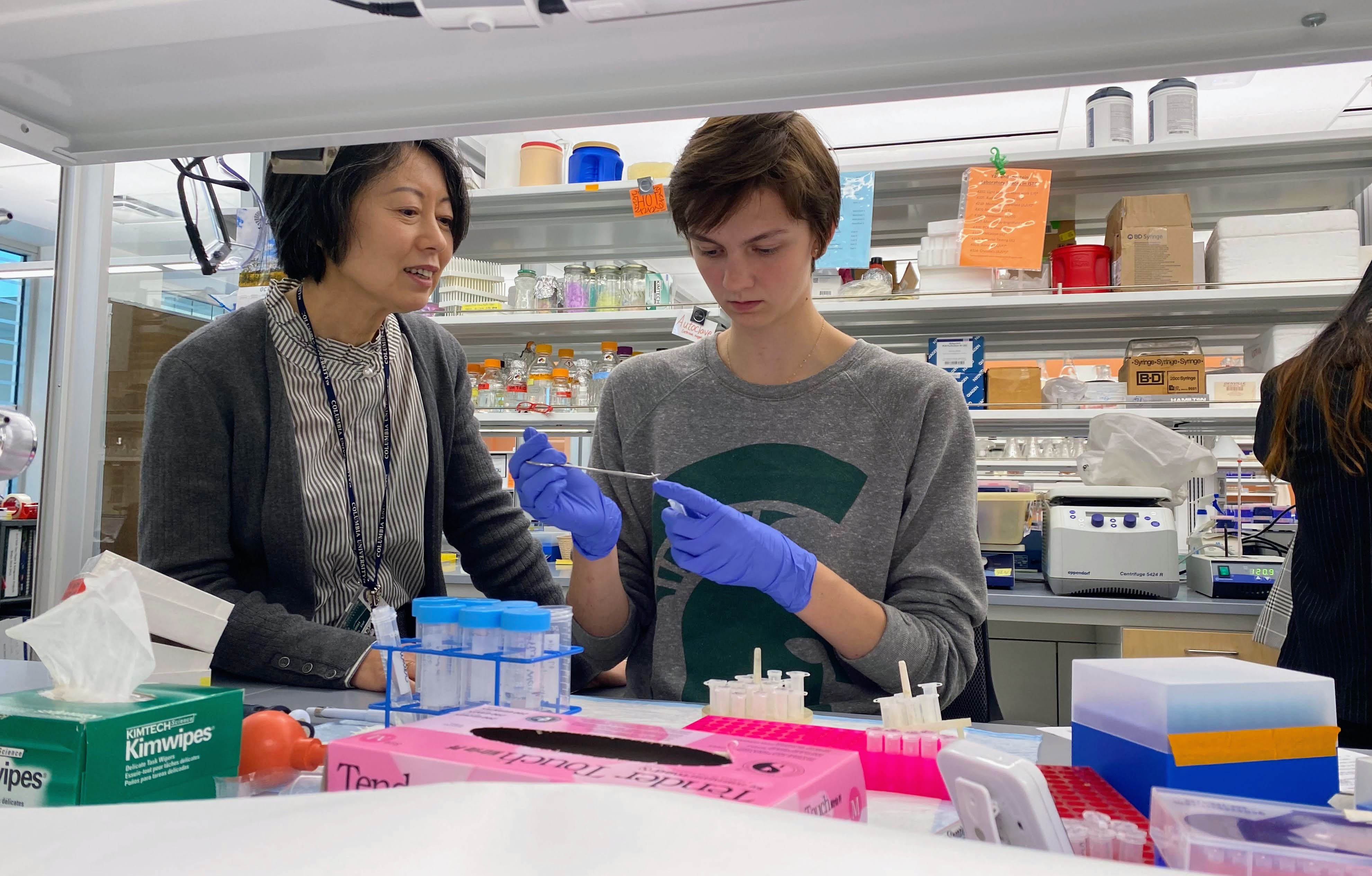
Grass rats and brain function
Imagine you are in a laboratory room watching two African grass rats trying to navigate through a maze. One grass rat moves through the course quickly and finds its way out easily. The other grass rat struggles and cannot figure out how to get out of the maze. You wonder why one navigates it so easily and the other cannot. You might be surprised to find out that the only factor that changes for each grass rat was light exposure.
Psychology professor Lily Yan and her team are researching with grass rats to understand how light modulates brain functions and behavior.
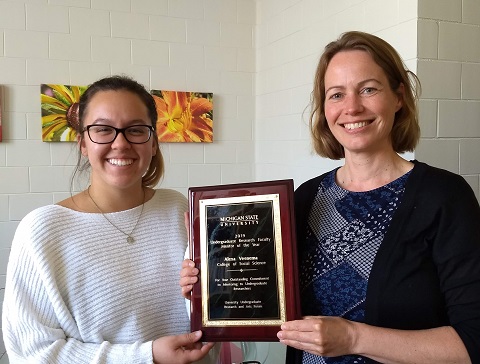
Dr. Veenema receives Undergrad Research Faculty Mentor of the Year Award
Dr. Alexa Veenema, associate professor of behavioral neuroscience, won the 2019 Undergraduate Research Faculty Mentor of the Year Award for Michigan State University. This annual award recognizes faculty who have demonstrated an outstanding commitment to mentoring undergraduate researchers.

